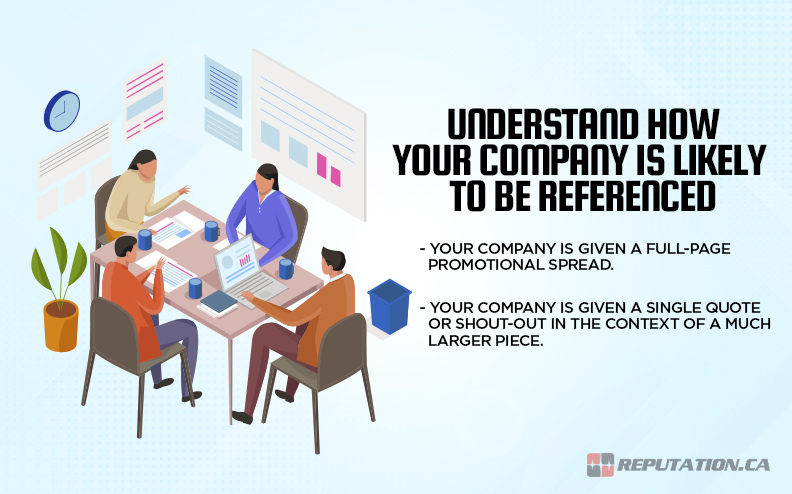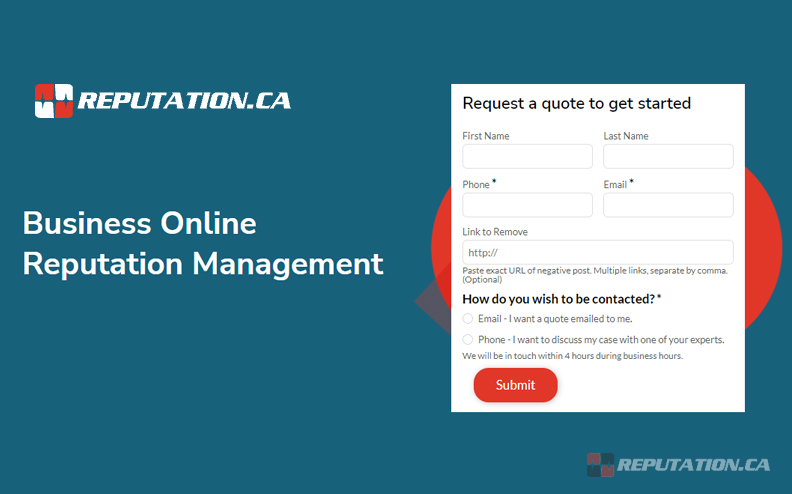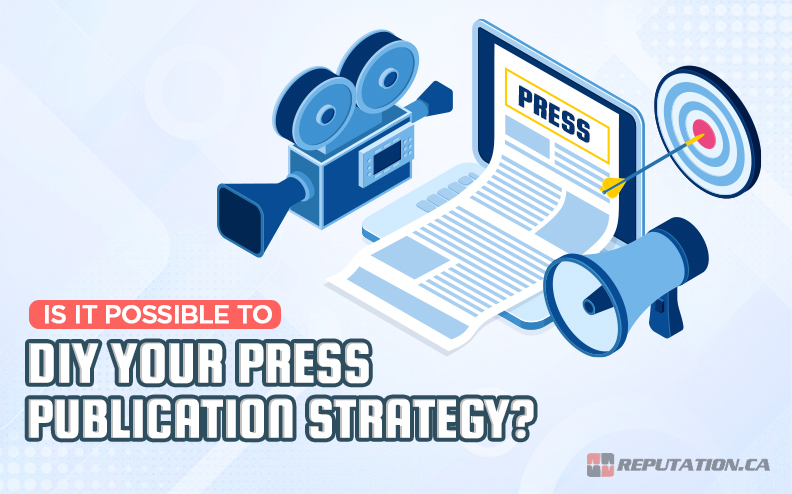Getting additional press for your business is a complicated process. You need to put in a lot of time and effort if you’re not taking the shortcut of hiring a reputation management, public relations, or press company to do it for you.
Is it possible to DIY a press publication strategy? Sure. Is it the best idea? Probably not. Let’s talk about it.
The Downsides and Roadblocks of DIY Press Publication Strategies
First of all, let’s talk about the roadblocks that are in the way of you implementing your own DIY strategy. There are a handful of major problems you’re likely to encounter, and it’s better to know about them ahead of time than run into them after you’ve already made significant investments.
Many major press publications have closed their contributor programs.
In the past, it wasn’t terribly difficult to obtain a contributor account to major publications. Everyone from local journals and publications to Forbes, Inc, Entrepreneur, and more had contributor programs open to nearly anyone with a business. All you needed to do was prove you were insightful enough to write for their publication, and you’d be off to the races.
Unfortunately, over the last decade, more and more businesses have taken to using these kinds of contributor programs to promote their brands. They were an easy source of reputation, authority, thought leadership, trust, and backlinks for SEO purposes.

Obviously, sites like Inc and Entrepreneur don’t like being used as little more than shills for reputation-building efforts. Many such sites have completely closed their contributor programs as a result. Any non-staff contributors were, almost across the board, locked out of their accounts. Older content may still be published, but links and occasionally even attribution may have been stripped. This has happened for thousands of websites, from Inc down to smaller publications.
Some sites have kept their contributor programs but have isolated them and reduced their value. For example, Forbes has a contributor program buried away in the form of their “Business Council” sections. These are pay-to-play memberships a business owner can pay a fee to use. They’re isolated away and have much less SEO value than the core channels on Forbes, and they have no added benefits beyond being able to have your name on Forbes.com.
This story is echoed across the board. As such, most of the available options for contributing your own content as part of a press strategy are sites like Medium, which focus on user-generated content exclusively. Alternatively, they end up on sub-sections like the USA Today Classifieds section, which is noindexed and invisible to Google.
Press content is either outright banned or prohibitively expensive.
Many of the sites you might want to use for a press publication strategy still allow you to publish content, with two caveats: the content has to be labeled sponsored content, and you have to pay to sponsor it.
This has led to a dichotomy of content you can produce. On the one hand, you can boost your reputation and thought leadership by writing generalized content about your industry. This content shows you’re aware of the goings-on in your industry and have interesting things to say about it, but they don’t directly promote your brand at all.

On the other hand, you can produce content that promotes your brand and products, but that content needs to be labeled sponsored and costs money. For larger sites, this can be a charge of $10,000-$20,000 or more for a single post. While a major corporation can swing this kind of budget, many small and mid-sized businesses can only dream of that kind of money for a single piece of content.
This is, of course, also restricted to just the sites that accept sponsored content in the first place. Some won’t accept it at all, no matter how much money you’re offering.
How to DIY a Press Publication Strategy Anyway

If the above doesn’t scare you off, there are still ways to DIY your publication strategy. You simply need to be subtle, circumspect, and round-about with it. The days of submitting a press release and getting it published in top-level industry journals are long past. These days, you need to take a more “influencer marketing” approach. Here’s how.
Befriend journalists.
Journalists are real people with real interests and thoughts; they aren’t simply mouthpieces for a publication. As such, if you take the time to network with them, you can befriend them. It can be a long and slow process, however, and it still won’t guarantee coverage.
- Do your research and identify journalists to target. You want to find journos who cover your industry and are likely to have an opinion about your company and product. It’s an added bonus if they’ve already covered your business favorably. Watch out for any who have done the opposite and been critical of your brand; these can be rewarding to convince but difficult and time-consuming.
- Start following the journos you’ve chosen wherever applicable. Bookmark and monitor their author profiles on your target publications. Follow them on social media, in particular, LinkedIn, Twitter, a Facebook Page (not profile), and Instagram.
- Engage with them. When they publish new content, help share it to your audience, leave a comment on it, and start a conversation about it where applicable. Remember, you’re trying to engage with them on a person-to-person basis, not as a brand. Use your personal accounts for this.
- Slowly work in the occasional reference to your business or product. Don’t be overt about it; simply mention it in the context of “in my experiences as head of product development for X, I’ve found that…”. This makes it feel more organic and relevant, which you should strive to keep.

All of this does two things. First, it opens up a relationship that you may be able to exploit later. If the opportunity arises, you can suggest your business as one they can interview for a purpose, or you can recommend your product to solve a problem they have, and so on. Secondly, by putting yourself in their consciousness, if they write about your topic, they’ll be more likely to recognize you and think of you favorably.
Make sure you’re only pushing press coverage when you have something newsworthy to share.
Press coverage is competitive. Journalists aren’t going to write about you for no reason. Bloggers might, but if you’re looking for press coverage (rather than blog outreach), you need something newsworthy to cover. A crisis, a new investment in a social initiative, a new product launch, a change in an executive team; these can be newsworthy items to cover. Ongoing operations are not.

This is the trickiest line to draw. Often, it’s not you determining whether or not you have something newsworthy; it’s the news. A topic that could garner a ton of coverage could be completely overshadowed by events elsewhere. There’s a certain amount of luck involved in the timing of your announcements, which you can’t always control.
Understand how your company is likely to be referenced.
In a lot of modern press coverage, you have two outcomes:
- Your company is given a full-page promotional spread, wherein the pros and benefits of your product or company are discussed, your philanthropic investments are advertised, and your pitfalls or drawbacks are downplayed.
- Your company is given a single quote or shout-out in the context of a much larger piece, essentially a contextual footnote rather than an emphasized point.

Of these two, the second one is far more common. Tools like HARO (Help A Reporter Out) help you get those citations. Typical blogger and journalist outreach does as well. Many marketing efforts push in that direction because, for most companies, it’s about the best you can get.
It’s important to manage expectations from your position within your company. If you’re an executive, keeping realistic expectations helps you avoid disappointment or anger when a long-awaited citation appears, and you get little more than a few sentences 3/4ths of the way through a post. If you’re a marketing manager, managing the expectations of those higher-up helps prevent that disappointment from falling back on you.
Expect to pay anyway.
Even if you’re taking the time to network with a journalist, there’s a decent chance that they have rules they have to follow about who and what they reference. A journalist citing your business in a beneficial way, especially if they circumvent standard rules to do it, means they’re putting their job on the line for you.

This means they will want assurances that they aren’t going to be at risk. They might refer you to the sponsorship channels with a connection or referral discount attached. Alternatively, they might accept their payment directly, hiding the entire relationship from both the publication and the world at large. After all, if it’s discovered, anything they’ve written before could have an undisclosed financial tie, which can violate site policy rules, FTC regulations, and even laws. The penalties can include steep fines on top of being fired and blacklisted from working in the industry. It’s not a risk that many are willing to take without significant compensation.
How to Handle a Press Publication Strategy the Right Way
If you’re going to be paying, and you’re getting relatively little out of it, why bother with the DIY method? If you hire a reputation management or public relations company to do the work for you, you can take advantage of quite a few, well, advantages.
- Your reputation management company has years or decades of experience doing exactly this and has the process refined into a science.
- Your reputation management company likely has connections with influencers, journalists, publications, and other entities that can make coverage both easier and more robust.
- Your reputation management company might have dedicated accounts with publications you personally can’t even begin to access, leaving you with better coverage than even a best-case DIY scenario.
- Your reputation management company has writers and other content creators on staff who can create compelling, useful content to promote your brand without needing to outsource it to another company or agency.
- Your reputation management company can do more than just a press publication strategy; they can analyze and fix your existing reputation in other ways, including many you might not have even known were holding you back.

All of this can be provided to you at a much lower price than you would be paying to do it all yourself. When you consider the time involved – and the paychecks for the people you pay for that time – along with the cost of sponsorships, the cost of creating content and media, and all of the associated costs for running a press strategy, the price of a reputation management package looks much more attractive.
So, let’s revisit the original questions. Is it possible to DIY your press publication strategy? Yes, though it’s quite difficult to do because brands have exploited it for decades, and many bridges have been burned before you reach them to cross.
Is it a smart decision to DIY your strategy? Probably not. If you’re operating on a very tight budget, you can limit yourself to organic outreach, but you need to have tame expectations for the outcome of that outreach. Additionally, there may be better places you can spend that time.
Should you hire a reputation management company to handle your press publication strategy for you? Most likely, yes. If you need a marketing push, have a reputation issue you’re trying to combat, or simply need to get more coverage, a reputation management company can bring far more resources and connections to bear than you can on your own.
If this all sounds like something your business needs, you should consider reaching out to contact us today. Our business services, whether you need a reputation boost, crisis management, monitoring and maintenance, or a new marketing push, are tailored specifically to your business and your needs.

Additionally, if you simply have any questions or concerns regarding press publication strategies or anything similar, feel free to reach out as well! We’ll be more than happy to assist you and your needs.











